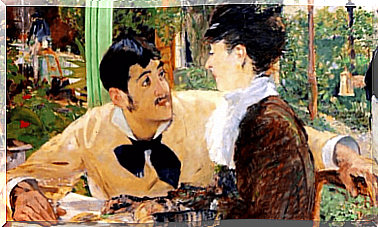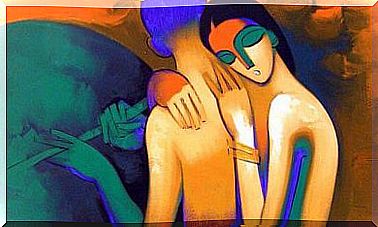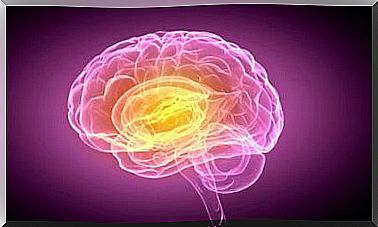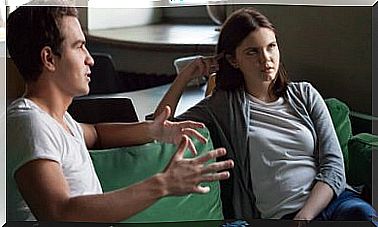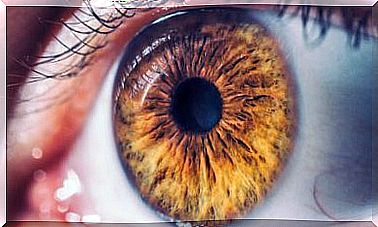Why Do We Resist Living In The Here And Now?

Carpe Diem , by the great Roman poet Quinto Horacio Flaco, means something like ‘ seize the moment ‘, in the sense of not wasting it. The complete phrase in its original language is ” Carpe diem, quam minimum credula postero ” and its most accurate translation is something like ‘Seize the day, do not trust tomorrow’. However, we resist living in the here and now.
A priori, it is easier to let the day go by and let tomorrow come than to “seize the moment.” What is that really? Some people are unable to live in the moment, to focus on the now. Addicted to the past to be able to live in the present. Lunged and sulking against his thoughts.
The worst part of all this is that we do not know if this ability was taken from us by “civilization.” If the wild is precisely to stop feeling to think. Why do we resist living in the here and now? Does this have to do with human evolution?

We resist living in the here and now because we judge and we are judged
Eckhart Tolle , in a masterful conference in Barcelona, highlighted this misfortune of the human being: being a prisoner of mental, material and emotional forms. Stop looking at them as something temporary … to start identifying with them. Stop being present … to be mentally satisfied.
This has nothing to do with “self-absorption” or paralysis. Quite the opposite. Nobody doubts that in this life you have to “do things.”
The fact of the matter is doing things and being present with what you feel, without continually judging or feeling judged. It is the most mature form of commitment and character.
Connect with the present: absence of ego and guilt
Sometimes, letting go of mental forms is a lot like pleasant contact with a baby, with nature, or with an animal. It is exciting to see how a person spends his time with someone who does not judge him, but does not pride him either. Some people disarm and others arm themselves. There are people who relax and connect with the present when they do not feel judged.
Others feel that they have to keep demonstrating something, continually. In the latter case, in addition to a problem of contact with the present, there is an excess of narcissism and ego.
For the first type of person, perhaps they lack good company or simply avoid others. Or more difficult: make yours bearable without continuous judgment. Without a guilt for everything they have done or are going to do. Look at life as a spectator of your mind and protagonist of situations.
We connect with the present when there is a radical acceptance of mental states without moral or intellectual submission to them. When we contemplate the forms of the world without feeling that they define us. The difference between over-intellectualization and true wisdom.
Give up the here and now for detachment and western culture
In the West, detachment is difficult to understand. We refuse to let go and we hold on.
When we have a family, friends, and a lover, we believe it will last forever. We suffer whatever happens. And this suffering stems from our inability to detach ourselves. To feel free and connected with the present dimension.
If we believe that something depends on us continuously or that we depend on others, connecting with the here and now is much more difficult.
In the face of death, it can take months or years to accept the departure of a loved one, when it is the normal process of life. Everything is led to death. It is not death that is sad and painful, it is your refusal to accept it as a normal life process.
Knowing how to stop in the here and now for our mental health
For us Westerners who live in the age of consumerism and productivity at any price, this search for the present moment is almost a luxury. Who has time to slow down to savor the morning breeze, the smell of wet grass?
We all have the impression of running constantly. For most of us, this race becomes a grueling routine.
Our daily life is breathless and we dream of the weekend, the next vacation, or even retirement. Let’s go to work thinking about dinner. Sunday is full of anxieties pertaining to Monday. Our present seems so dull and empty that we run away.
Living in the here and now taking into account our values will be easier
In a society where performance is valued, the concept of the “here and now” may surprise you. It can even be synonymous with laziness and carelessness. Now, this is not a cheap philosophy.
The present makes sense through the past and the future. It is not a still photo, but it is part of a movie. We must know where we come from now to make gestures that will build the future. We can think about environmental problems: we act now knowing that they will have impacts in the future.
Struggling with exhaustion that forces us to stop, we end up wondering what it all means. And that is often what is missing in our lives: meaning. It is important to know what motivates our actions and choices.
This does not mean that you have to give yourself spectacular goals. Giving meaning to life is finding what matters most to us and then working and acting on that priority. It can be family, love, our children. Only with a clear purpose, which makes sense to us, can we really take the time to savor the path that leads to it.

Live now to forge memories linked to your values
Stopping to enjoy the moment, we build happy memories of our senses. Some shamans call them “hot memories.” Unlike the “cold memories” forged from our intellect, these memories are indelible and become a source of comfort.
If our well is empty, if we have not taken the time to enjoy the little moments of happiness in our lives because we were too busy to perform and run, we will have the impression that our life is devoid of content. “Quarantine crises” are often the result of this observation.
Why do we sometimes give up living in the here and now?
Simply feeling alive and healthy, here and now, can be a source of joy. Even so, it is necessary to stop to appreciate it. Author Sarah Ban Breathnach’s advice is to keep a journal in which you write five things that you are grateful for each night. We realize that we are much richer than we think.
They have crushed us with phrases like “your present depends on your past”, “it is up to you to forge a good future”; relating the value of the present with uselessness, invisibility or even inactivity. A person who does not think about having a good past story and a promising future is lost. In some vulnerable people, these messages crystallize into anxiety, hyperactivity or depression.
The only way to heal is to accommodate everything that happens in your life with a face-to-face, alert and interested attitude towards what is happening in the present moment, assuming that nothing is so horrible in reality when you make contact with the ground. On many occasions, bad things only happen in our mind, trapped in the world of social forms and not in the depths of being with its senses open.
